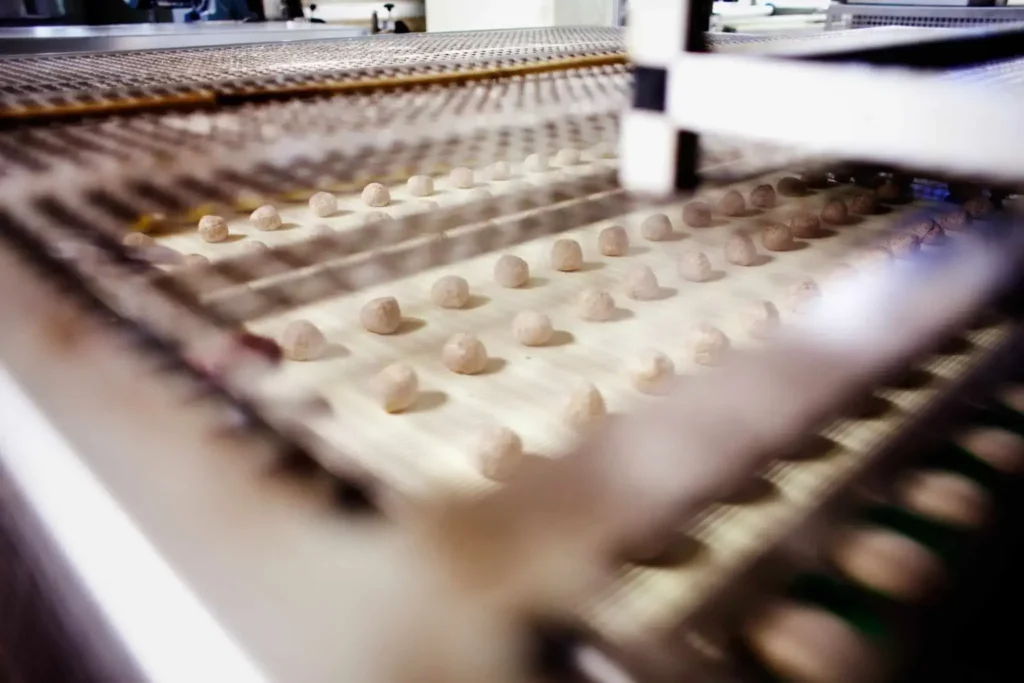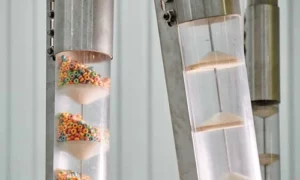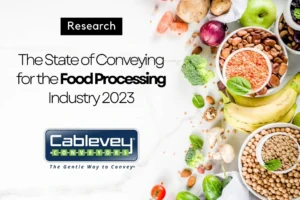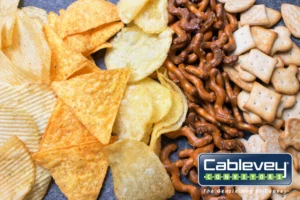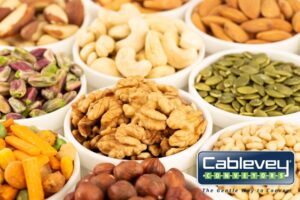In the world of food processing, understanding the diverse nature of materials is essential. Each ingredient and product has unique handling requirements to preserve its quality. One particular category that demands special attention is fragile materials. So, what are fragile materials in food processing? These items are integral to a variety of food products yet are susceptible to damage if not handled with care. Let’s gain a foundational understanding of what constitutes fragile materials in food processing.
Let’s Start From the Basics – What Are Fragile Materials in Food Processing Exactly?
By definition, fragile materials or products are those that easily break or fracture when handled roughly. What does this mean for the food processing industry? Fragile materials are present in almost any segment of the food processing. The most common examples include breakfast cereal, nuts, dry granules of any kind, and powders.
These materials are often handled by a variety of people and machines. What this means is that there is a higher risk of breakage during transportation processes. Thus, extra precautions must be taken when transporting these products if you don’t want to suffer from high material loss due to breakage. In the following text, we’ll talk about fragile product handling in detail – why it is important to handle them gently and how you can effectively manage that for your food processing business.
Which Materials Are Considered Fragile in Food Processing?
Breakfast cereal is one of the most vulnerable commodities that require careful handling during production, shipping, and storage processes. What makes it so susceptible to breakage? Cereal is made from brittle walnuts, grains, or other hard kernels that can easily get damaged at a high rate. Cereal is more vulnerable to breakage when it is packaged in bags or containers that lack proper protection.
Nuts are another type of delicate commodity that is prone to breakage. There are several reasons why nuts are so fragile – for one, they are a dry product with very little moisture content. They are also brittle, which means they can easily get crushed when free-falling on a conveyor system or other material handling equipment. Finally, their outer covering is made from a dry shell. This shell can easily crack under pressure or high-speed vibrations.
Powders such as those in the coffee industry fall into this category, too. Coffee requires careful handling because it has a very low moisture content and fine texture. Fragile coffee powder (or any other type of powder) can easily become airborne and be blown around by air currents in the plant. This poses not only a material loss problem but also a plant contamination problem.
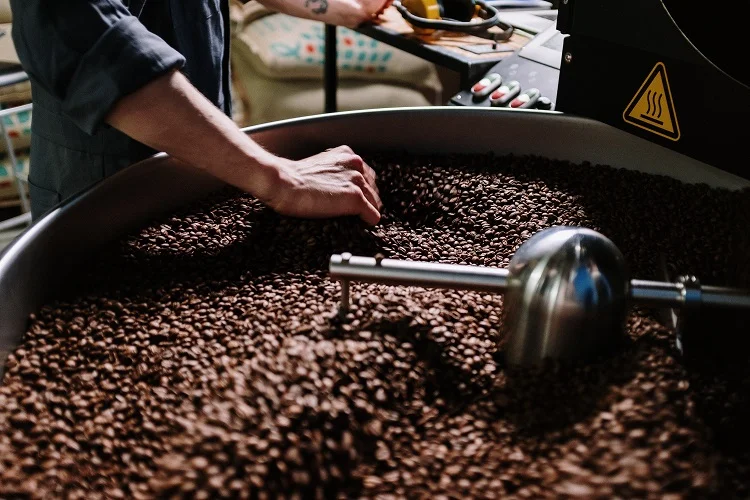
One of the Main Issues in the Processing of Fragile Materials Is the Material Breakage
When it comes to fragile materials, the main problem that manufacturers face is breakage of precious materials. The most common causes of material breakage are rough handling, lack of attention, inadequate industrial conveyor systems, insufficient storage space, and less qualified employees. All of this leads to the following issues that plague food processors:
- Material loss,
- Material spoilage,
- Downtime and replacement costs,
- A poor reputation for product quality.
It is a well-known fact that damaged products have less value. What’s more, a damaged product can quickly spoil and develop dangerous microorganisms. All of this leads to potential hidden costs in the food processing industry due to poor handling practices of fragile materials.
To avoid these costs, it is essential to equip your facilities with the right conveyor systems and proper handling procedures. Fragile materials need to be managed with care, and you need to find the best material handling solution – one that is just right for your needs.
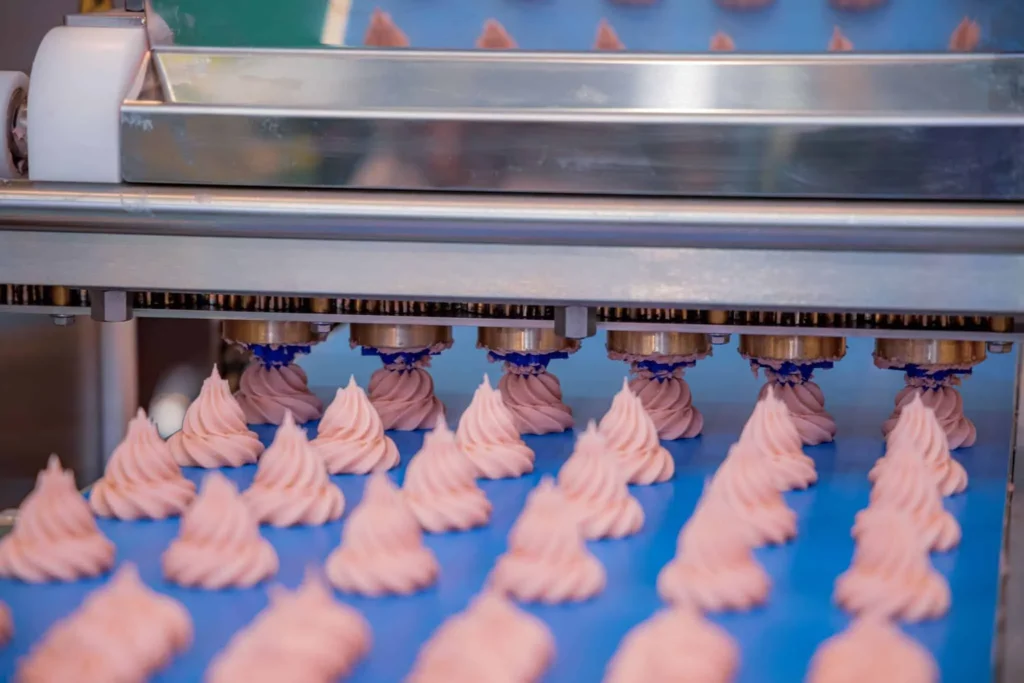
How Do You Solve the Problem and Prevent Material Breakage?
The best solution for preserving material integrity in a food processing facility is to use the right conveyor technologies to transport the product. By resolving transport issues, you will significantly reduce the risk of material breakage between the points of origin and destination.
Adequate conveyor solutions can protect products from the effects of gravity, compressive forces, impact forces, high or low temperatures, water, and breakage caused by the processing equipment. Depending on your product’s requirement for protection (for example, moisture content), you can choose a conveyor system that best suits your facility’s needs. In the case of fragile food materials mentioned above, our recommendation is definitely a tubular cable conveyor system.
Tubular Drag Cable Conveyors – What Makes Them So Special?
A tubular conveying system is a mechanical system with a sealed tube. The product is gently moved through the tube with the help of circular discs evenly spaced along a coated drag cable. Because these discs move slowly and push the material slowly, product degradation is almost nonexistent.
The type of cable most commonly used in tubular conveyors is a stainless steel cable with a wire strand core. These are incredibly high-tensile cables often used in the aerospace industry. A tension turnaround unit maintains the cable tension to prevent the breaking of cable strands.
The Benefits of Tubular Conveyor
In terms of sanitation, tubular drag cable conveyors meet all the required safety standards for food processors. The cable is sealed in nylon, meaning that no segment of it comes in direct contact with food material. The food products remain uncontaminated and contained within the sealed tube, keeping them out of contact with the cable. When it comes to fragile materials, a tubular cable conveyor provides the following benefits:
No Material Loss
What protects fragile foods is containment within an enclosed tube. Food material does not get thrown around, and there is no material loss from breakage.
Gentle Transport
Tubular cable conveyors are the gentlest systems on fragile materials. In most other systems, the products are handled in a variety of ways that could damage them. They can be knocked around and even crushed – there is no possibility of this happening in a tubular cable conveyor system.
No Contamination
The enclosed tube of the conveyor system keeps fragile foods protected so that they are not exposed to dirt, dust, insects, and other contaminants.
Low Maintenance
What is great about a tubular conveyor is that there is little to no maintenance required, making it an ideal choice for food processors. What cannot go into the system can be filtered out of the system, and what goes in stays sealed within that tube.
Easy Cleaning
Keeping a transport system clean and sanitary is the number one priority in the food processing industry. Conveyors that are too hard to clean are far from an efficient option. A tubular drag cable conveyor system has several simple wet-and-dry cleaning mechanisms you can choose from.
Where to Use These Conveyors?
So, we’ve established that tubular conveyors are highly efficient. But what can you use them for exactly? If your materials call for it, tubular cable conveyor systems can be used in basically any stage of the food production process. Let’s take a look at the most common uses:
- Receiving raw materials,
- Weighing and filling,
- Grinding and packaging.
These conveyors are particularly useful in environments where you expect significant material damage, contamination, or dust accumulation, such as during filling and packaging. Your fragile materials will be protected, and your overall process will run more smoothly.
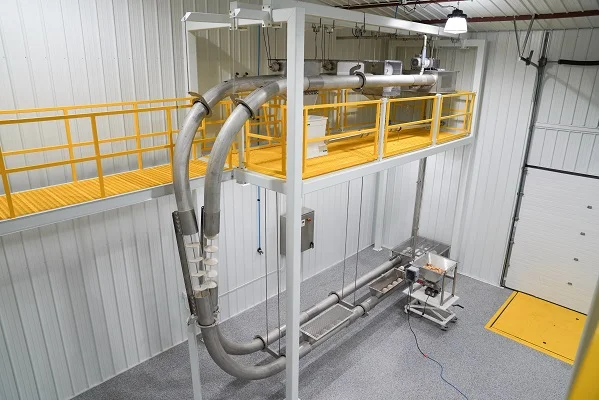
Conduct a Material Test to Ensure the Conveyor You’ve Chosen Is the Right Fit for Your Facility
To ensure that you’re choosing the right conveyor for your type of fragile materials, you should run a material test on the system you have set up in your factory. This will present a clear picture of what the conveyor will do for you and what kind of improvements could be made. During the material test, you need to monitor all the variables that will be affected by the new conveyor system.
Why Run a Material Test?
If you spot a potential issue or error during testing, you might get the option to change the system before it has a negative impact on your business. Any issues that occur in this phase are easier to overcome compared to after the conveyor system is installed. A material test helps you determine how well your conveyor is working for you so that you can maintain or optimize its performance. You will have an accurate idea of how well the conveyor system that you have installed will operate.
Cablevey Conveyors Can Help You Conduct a Material Test
Cablevey Conveyors readily accepts materials for breakage tests from our prospective customers. Don’t hesitate to reach out to us and arrange a material test on our conveyors. Upon completing the food testing phase, it is crucial to evaluate all aspects of the conveyor’s performance, including material flow rate, maintenance requirements, and monitoring ability.
Contact Cablevey Conveyors for More Information About Industrial Conveyor Systems
Fragile materials are susceptible to a wide range of damages – this can be costly in the long run. They require special care when handling, and Cablevey Conveyors can help you with that. With the right conveyor system, such as a tubular cable conveyor, you can minimize or eliminate all your problems. Contact us for more information on tubular cable conveyor systems and how you can incorporate them into your business.
FAQ
What Are Examples of Fragile Materials in Food Processing?
Fragile materials in food processing include items prone to breakage, like breakfast cereal, nuts, and powders. Breakfast cereals are vulnerable due to their brittle components. Nuts, being dry and brittle, can be crushed easily, especially during conveyance. Powders, like coffee, with low moisture content, can become airborne, leading to material loss and contamination issues, necessitating careful handling to maintain quality and safety.
What Challenges Arise From Handling Fragile Materials?
Handling fragile materials in food processing involves challenges like material breakage due to rough handling, inadequate conveyor systems, or less skilled employees. Breakages lead to material loss, spoilage, increased downtime, and replacement costs and can harm the product’s quality reputation. Implementing proper handling procedures and conveyor systems is essential to mitigate these issues and maintain product integrity.
How Can the Breakage of Fragile Materials Be Prevented During Processing?
Preventing breakage requires using appropriate conveyor technologies. Conveyor systems should protect products from gravity, compressive forces, impact forces, and temperature extremes. Tubular cable conveyor systems are recommended for fragile foods as they offer gentle transport, minimizing the risk of breakage and maintaining the integrity of delicate products throughout the processing phases.
What Are the Benefits of Using a Tubular Drag Cable Conveyor for Fragile Materials?
Tubular drag cable conveyors offer multiple benefits for handling fragile materials. They prevent material loss and contamination by enclosing food in a sealed tube. The gentle transport system ensures minimal damage to products. With low maintenance needs and easy cleaning mechanisms, these conveyors are efficient and sanitary, making them a favored choice in the food processing industry for fragile materials.
Why Is Conducting a Material Test Essential Before Finalizing a Conveyor System?
Material testing ensures the chosen conveyor system suits your specific fragile materials. It allows monitoring of all affected variables, offering insights into potential improvements before the final conveyor installation. Identifying and addressing issues during this phase is more manageable, ensuring optimized conveyor performance. Cablevey Conveyors assists in conducting these tests to guarantee the conveyor system effectively handles your materials.
How Does a Tubular Cable Conveyor System Ensure the Safety and Quality of Fragile Materials?
Tubular cable conveyors safeguard fragile materials by enclosing them in a sealed tube, preventing breakage and contamination. The slow, gentle movement of circular discs along a coated drag cable ensures minimal product degradation. These systems are easy to clean and maintain, meeting the stringent safety standards required in food processing, ensuring that fragile materials retain their quality throughout handling and transportation.

